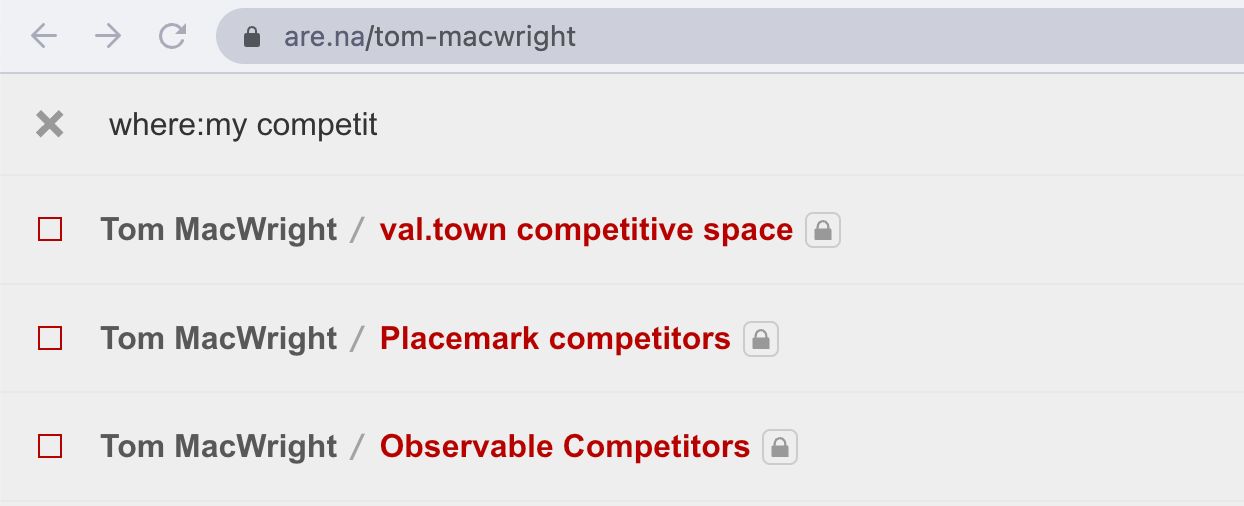Competition
For the last few jobs, I've kept a private are.na board of competition. Every time I saw something that looked like it was competing with Observable, or Placemark, or val.town I'd add it to the list. Eventually I'd have a big gallery of screenshots of all the other companies and projects doing something similar to what I was building.

I still don't really understand competition. Like a lot of concepts in business, it's flexible and contextual in a way that technology itself isn't. But there are a few things that have started to make sense.
The competitive landscape is a construction
Adam Neumann kept describing WeWork as a physical social network. MoviePass sold "bad movie insurance", not discounted movie tickets. When Mark Zuckerberg defends Facebook's business in congress, he spends a lot of time arguing about how broadly he can define the idea of a competitor.
A company that wants to look strong for investors tells a story about having only a few, weak competitors. Then, a company that needs to stop looking like a monopoly wants to use a broad definition of competition in which it is barely staying afloat.
These are extreme examples, but it's basically how things work at a small scale too. When you're advertising or talking about a company, naming competitors is as much about choosing as it is about observing. If you want to make your product sound valuable, you compare it to a competitor with an expensive product, not a free one.
It's inevitable
Every field has competition. Every market can feel crowded. And, generally, it's not personal. I remember when I was working on Carto and right after the first release I heard from the folks at Carto, then CartoDB, that they were about to announce their company, which had been in development for years. Or when I was working Placemark at the same time as Felt and Range were in development.

It's always going to happen. Any good idea is going to have a few different tries at it, at the very least. I've grown to appreciate the leaders who just maintain the peace when competitors crop up, because most of the time, panic doesn't do any good. But, I still went to a local bar with a friend the night the biggest competitor to Placemark launched. Can't always be a stoic.
Most people don't know or care
Because I've worked adjacent to open source for my entire career, there have always been big, well-known open source projects that companies would be compared to. Mapbox, for example, used data from and contributed code to OpenStreetMap. Observable is conceptually similar to Jupyter, another system for scientific notebooks.
And so we'd get a lot of questions about Mapbox versus OpenStreetMap, whether we were competing with them, replacing them, and why use one when the other is free.
There are answers to those questions, but does it matter? The reality is that most people don't have the time or need to understand the differences between different companies and products. If the first thing they try works, then great - even if it isn't the perfect, most efficient way to do it. This is, after all, what advertising is: a way of telling people that some product is the thing that they need.
I still keep the are.na boards going, but try to worry about them less. I understand them more as competition in advertising than I do as competitive products.